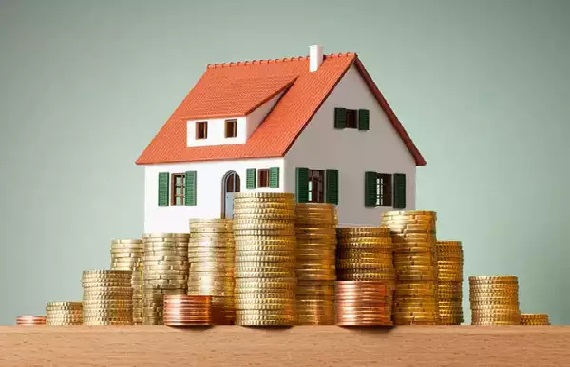Budget 2023: The content of taxable relief will be preferable for the real estate

One of the most important industries in our economy is real estate. By 2030, it is anticipated to have a market of US$ 1 trillion, up from US$ 200 billion in 2021, and to have contributed 13% to the GDP of the nation. The sector has been severely impacted by the current economic downturn, but it has also been impacted by changes in rules and regulations that have reduced building and increased buyer demands. Due in large part to the fact that interest rates are still at record lows, these developments have made it more difficult for developers to obtain financing for new projects.
Developers are hopeful that the government would offer more incentives to boost affordable and rental housing and also increase the Rs 2 lakh tax rebate on housing loan interest rates under Section 24 of the Income Tax Act up to at least Rs 5 lakh. The Union Budget 2023 should offer a degree of personal tax relief, either by way of lower tax rates or by readjusting tax slabs. Doing so would also help boost housing absorption.
There is a need to make technical changes in various taxes to make them more progressive and efficient. Such measures can be taken up as part of the Union Budget 2023. There are several measures that can be taken up to improve the quality, efficiency and transparency of government expenditure. These include improving the monitoring systems for implementation of schemes, eliminating duplication in spending and putting in place a robust management information system.
A key area where government expenditure is being slashed is capital expenditure and there should be a focus on public infrastructure projects like roads, bridges etc. Additionally, the government needs to ensure that our people have access to affordable housing which is not only vital for their economic well-being but also for their social security through ensuring affordable education for their children.
For the last couple of years, the Union Budget has been hailed for its focus on the middle class, with a slew of measures aimed at helping those in the lower income brackets. But it is also possible that this budget could have some additional benefits for individuals who are not so well off.
Given that the booming real estate sector is one of the biggest drivers behind India’s GDP growth and job creation, it is important that the government works toward making housing more affordable for middle-class Indians. The budget can do this by revising the income tax slabs. Individuals below 60 years of age currently receive an annual income tax exemption limit of Rs 2.5 lakh per annum.
It is important to increase net disposable income to improve the welfare of the people. Hence, it may be considered whether the existing basic exemption limit under the tax regime can be increased to Rs 5 lakh p.a. This would also need to be balanced and assessed on the basis of potential taxpayers who may consequently come outside the ambit of mandatory tax return filing requirement.
On the other hand, tax rates for lower and middle-income slabs can be rationalized given the high inflation and rising cost of living. These tax rates under the traditional tax regime have not changed for long, even though they are no longer in line with inflation and income growth. It is recommended to lower the income tax slab rates for persons with total income up to Rs 20 lakh. It is expected that the highest tax rate of 30% be reduced to 25%. The tax rates for persons have not been transformed since FY 2017-18, apart from the new tax regime, which is subject to onerous conditions.
To provide greater purchasing power to individuals and reduce the tax burden on them, it is expected that the highest tax rate be reduced to 25%, with the threshold limit for the highest tax rate increasing from Rs 10 lakh to Rs 20 lakh. With this, the highest slab rate (including surcharge and cess) may be reduced to 35.62% from 42.744%.
This will help lessen their burden while also encouraging them to invest in property as an alternative asset class. It will also boost housing demand as well as reduce investment risk in real estate, which is currently at record highs due to high interest rates. It will also make investing in real estate more attractive, which means that developers can increase their supply of new homes without having to worry about rising prices resulting from higher demand from first-time buyers like millennials who are still trying to save money for buying houses without taking out loans.
Reducing personal income tax would be an excellent way to boost housing demand and absorption in India, as it is one of the most important areas for the government to address. The current income tax slab structure has been in place for several years now, and so there has been little change to it in that time. The current slab structure is based on age, which means that people who are younger tend to pay less tax than older people because they have lower incomes and therefore lower tax brackets.
A personal income tax reduction could help address this issue by reducing the amount paid by younger workers while preserving this benefit for older workers. Additionally, it would be beneficial if some changes were made to ensure that lower-income households receive more benefits from this proposal than higher-income households do.
Reducing the tax burden on individuals and families is one of the most important measures that can be taken to boost economic growth. In fact, according to the OECD, this is one of the four key areas where governments could be doing more to support growth.
While there is no doubt that reducing taxes will help boost growth, it is important to keep in mind that not all forms of taxation are equally effective at creating economic activity. In fact, some taxes may even have a negative impact on economic activity because they discourage people from working hard and completing their education.
This year’s budget will have to pay special attention to both tax relief and housing demand in India. With our population projected to double by 2050, there’s no time to waste and our government has a responsibility to make sure that space is available for everyone who wants it. The Union Budget 2023 should also focus on improving affordable housing for all Indians. India has a huge population, but there are only about half as many apartments as needed in urban areas, leaving many people without homes or access to basic necessities like food or water.
Read More News :
Budget 2023: Agro-chem industry reduced GST, import duty on crop protection chemicals
Venture Capital Invests Over $2.5 Bn In Green Investment In Last 36 months



